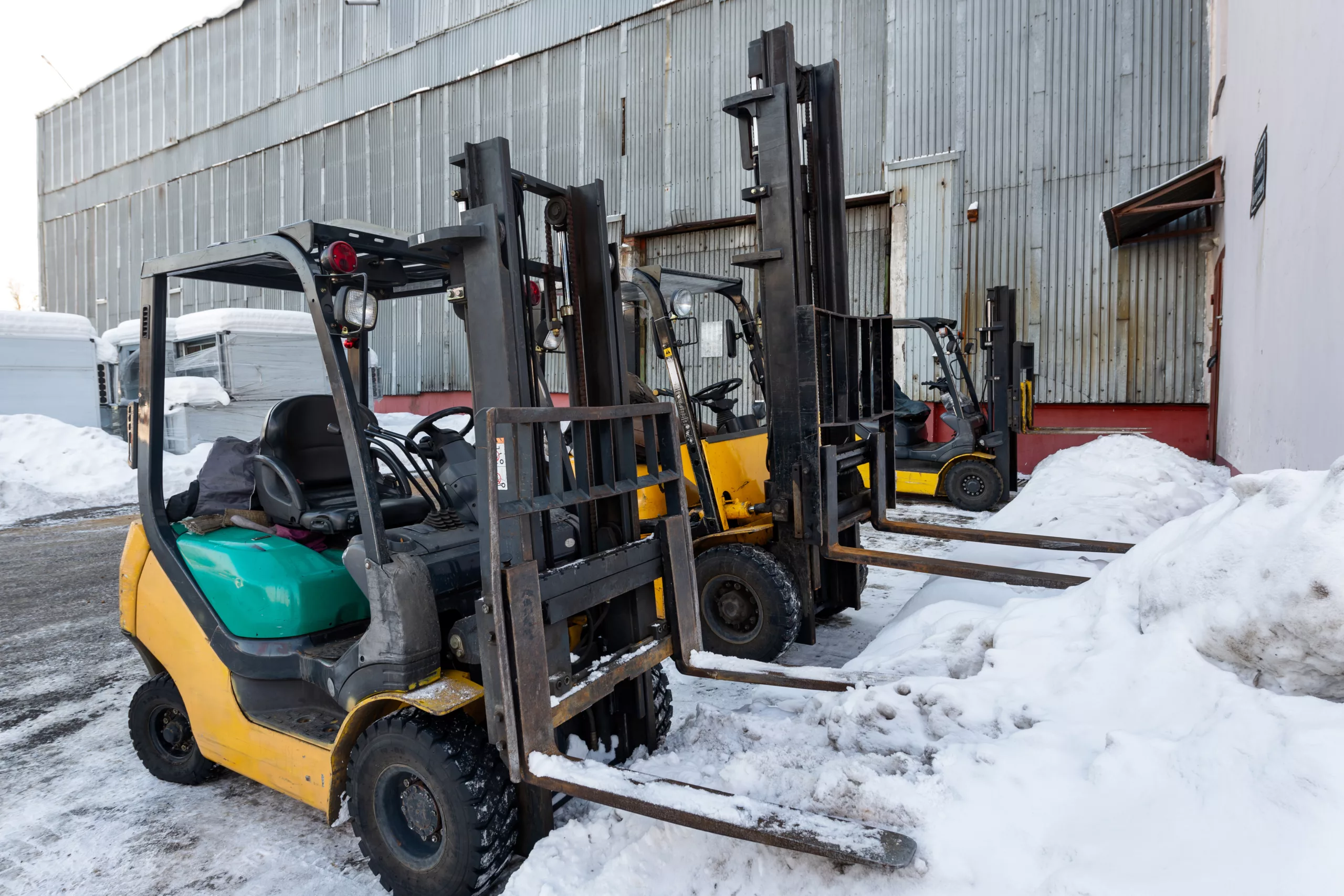Forklifts are essential equipment in various industries, such as warehouses, manufacturing plants, and construction sites. They help with the transportation and lifting of heavy loads, making tasks more efficient and less labor-intensive. However, during winter months, forklifts face unique challenges that can lead to downtime and safety risks.
Freezing Batteries
One of the primary issues for forklifts during winter is freezing batteries. As temperatures drop, lead-acid batteries used in electric forklifts can freeze, causing them to lose their charge. This results in reduced performance and, in some cases, complete battery failure.
To prevent this problem, it is essential to keep the batteries warm by storing them in a heated area or using specialized insulated blankets. Additionally, make sure to charge the forklift batteries at room temperature to avoid damage.
Slipping on Icy Surfaces
In snowy and icy conditions (LINK: https://www.d2000safety.com/forklift-winter-driving/), forklifts can easily slip and lose control, posing a significant safety risk to both the operator and those in the surrounding area. This problem is especially prevalent when operating on uneven surfaces or loading docks.
To minimize the chances of accidents, it is crucial to keep forklifts well-maintained and equipped with proper tires for winter conditions. Operators should also receive training on how to handle slippery surfaces and practice caution when operating on them.
Reduced Visibility
Heavy snowfall and blizzards can hinder visibility, making it challenging to operate a forklift safely. This poses a risk not only to the operator but also to other personnel in the work area.
To combat reduced visibility, it is crucial to keep the forklift’s lights and signals well-maintained and functioning correctly. Operators should also be trained to use alternative methods, such as caution signs and spotter assistance, to navigate safely in low-visibility conditions.
Frozen Hydraulics
Another common problem for forklifts (LINK: https://www.forkliftaccessories.com/forkliftblog/troubleshooting-common-problems-with-a-forklift/) during winter is frozen hydraulics. The cold temperatures can cause hydraulic fluid to thicken, leading to reduced performance and potential damage to the forklift’s lifting capabilities.
To prevent frozen hydraulics, it is essential to use the correct type of hydraulic fluid for cold temperatures and regularly check the levels to ensure they are not low. If possible, storing the forklift in a heated area can also help prevent this problem.
While winter presents unique challenges for forklift operation, proper maintenance, training, and caution can help mitigate common problems. By staying informed and taking necessary precautions, forklift operators can ensure safe and efficient operation even during the coldest months of the year.
Ensure your forklift is in optimal condition this winter by finding a forklift repair company near you. (LINK: ForkliftRepair.com search page)


